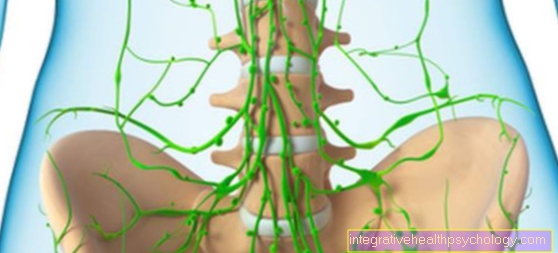Consequences of stress
introduction
Stress is a phenomenon that triggers both physical and psychological reactions in the organism. From a medical point of view, stress leads to an activation of certain brain regions, which in turn cause increased muscle tension and hormone release. Those affected perceive these physical effects as tense neck and back muscles or abdominal pain. Mentally, there is often an inner restlessness or tension. From a purely evolutionary point of view, stress reactions are very useful, as they cause an increased mobilization of our reserves. However, if the stressful phases last too long, they lead to excessive demands on your own performance. This explains why stress is nowadays more and more fraught with negative associations and loses its protective character in the general view.
Also read the article on the topic: Stressors

However, experts still differentiate between so-called “good stress” and “bad stress”. An example of “good stress” would be increased tension in an exam situation. The excitement means that stored information can be better accessed. If the tension is too great, however, it blocks the person concerned in their performance. Often this is an expression of excessive demands, which in turn is viewed as "bad stress".
Stress is therefore a multifactorial event that is dependent on external factors such as the work situation as well as internal factors such as personal resources. If the balance between requirements and one's own abilities is not right, the person concerned loses his inner balance and perceives this as stress.
General consequences of stress
Physical symptoms:
- The general consequences of stress are mainly physical symptoms, which are often perceived as unpleasant by those affected. Brief stressful situations primarily activate the cardiovascular system. Thus an increase in heart rate and an increase in blood pressure are typical of an extraordinary external stimulus. Those affected often notice how their heart starts racing and, figuratively speaking, the blood rushes to their heads.
- If this stressor persists, the skeletal muscles also tighten. A permanently tense musculature in turn leads to muscle tension, which causes pain and restricted mobility. It is noticeable that the neck and back muscles in particular are very often affected. The first signs are a stiff neck with possibly accompanying headaches or back pain after long periods of sitting. The psychological effects of stress, on the other hand, are not always consciously perceived.
This article might also interest you: Hot flashes in men
Mental symptoms:
- It is much more often the case that those affected are able to classify their psychological symptoms correctly afterwards. Prolonged stress often leads to impairment of the ability to concentrate such as poor concentration, as the focus of the thoughts is directed to the stress trigger. Objectively, this can be observed in a decline in memory performance - especially working memory. Problems in everyday working life are therefore not uncommon.
- In addition, there is often an indefinable feeling that those affected describe as simply “different”. They often notice a mixture of inner tension and emptiness. There is no comprehensive medical explanation for these sensations. However, the activation of different brain regions can establish the emotional component. It also causes a change in hormone release. The stress hormone cortisone in particular is released in stressful situations and is intended to ensure that the body is optimally prepared. It ensures an increase in blood pressure and an increased supply of energy reserves as well as their build-up for further stressful situations.
- It is therefore not uncommon to observe that those affected eat more and gain weight in stressful situations. This is due to the body's perception that it has to arm itself for difficult times.
- Furthermore, the willingness to act is increased, which can also be expressed in sleep disorders. Difficulties falling asleep or staying asleep can occur. These are often the most stressful for those affected.
- Burnout can also occur as a result of persistent stress. Read more about this under: Burnout Syndrome
Consequences of stress in pregnancy
During pregnancy, stress not only affects the mother but also the child. How severe the consequences are depends on the extent to which you are stressed. Light stress is primarily only perceived by the mother and has no serious effects on the child. However, if the intensity of stress increases, this has an impact on the care of the child in the womb.
Stress leads to an increase in blood pressure (see also: High blood pressure in pregnancy - is it dangerous?). This should improve the maternal blood flow to the muscles and the brain. This is achieved by reducing the diameter of the blood vessels. So the blood vessels contract to increase the rate of blood flow. This can be visually compared to a garden hose. The smaller the diameter, the higher the pressure with which the water is transported out.
For the mother, this measure of the body is very useful. For the child, however, it means a changed situation in their blood supply. On the one hand, part of the mother's blood volume is increasingly directed into the muscles and the brain at the expense of the child's usual blood supply. On the other hand, the vessels of the mother cake are also narrowed, since stress affects all blood vessels in the body. If this situation lasts only briefly or in moderate form, it has no lasting effects on the child. However, if it lasts for a long time or in extreme form, this leads to an undersupply of the mother cake.
In extreme cases, this can lead to tissue deterioration. The child then does not receive the necessary nutrients and oxygen from the mother, so that it cannot develop normally. Depending on the extent, this can lead to slowed growth or incomplete development.
However, pregnant women are very sensitive to physical sensations and often notice changes in their child. They often change their everyday life intuitively and thus prevent possible damage. Nevertheless, it is also important to prevent stress during pregnancy and to have regular preventive examinations. The smallest changes can be discussed and, if necessary, prophylactic measures can be taken.
Read more about this under: Stress in pregnancy
Consequences of stress in the workplace
Workplace stress is a common problem. The form in which the stress is expressed or how it is perceived, however, varies greatly in individual cases. The triggers for stress are just as individual. Most often, time pressure is a reason for increased stress. Those affected feel compelled to perform piecework and lose focus on their actual work due to the stress. But tensions in the team or private problems can also cause stress at work. In any case, it leads to a changed perception of working conditions.
External factors such as persistent noise or constantly changing customer traffic can make these feelings even worse. Depending on the type of work, stress can be reduced through physical activity or small breaks (see also: How can you reduce stress?). It is therefore particularly important to offer preventive measures for employers. These can, for example, consist of team building exercises, flexible working hours ("Flexible working hours") or spatial changes such as room dividers exist.
In the long run, stress leads to decreased performance at work and leads to the fact that those affected make more mistakes. The mistakes in turn create a sense of guilt and reactively there is a fear of making new mistakes. In order to break this chain of errors, it is necessary to take the pressure off the situation. So either working conditions have to be improved, a teaching offered or a short break given. Each measure offers a better focus on one's own abilities and gives the person affected time to sort themselves out.
It is wrong to assume that stress leads to better performance in the long run. Stress can also spur individuals on in the short term, but in the long run it leads to dissatisfaction. The individual resilience must therefore be found out and taken into account. If it is not compatible with the company's objectives, it may be necessary to change jobs. Otherwise, physical symptoms will only increase and there will be a permanent increase in lost work.
If the perceived stress is also disproportionate to your own resources, in the worst case it can even lead to serious mental illnesses such as depression or burnout. But also physical symptoms, without a cause to be found by a doctor, can arise and become chronic in the long run. Body and psyche should not be constantly overworked at work and vacations should be carefully planned and used to balance tension. The time at home or on vacation should really be used as a break and not as a home office.
Consequences of stress on the body
The effects of stress on the body can be varied. At the beginning of a stressful phase, however, it is rather banalities that those affected often perceive as cold symptoms or an impending flu. So it is often a discomfort that manifests itself at the beginning. It can manifest itself in general weakness, a slight headache or aching limbs.
However, if the disease does not deteriorate, stress is quickly suspected as the cause. Namely, it causes increased tension in the muscles, which can become painful in the long run. If a physical illness actually occurs, this is due to the effect of permanent stress on the immune system.
Stress initially causes the body to be more prepared. It prevents small weaknesses in the body from being consciously perceived. However, if the body's resources are overused, the stress falsely simulates a physical strength. In truth, however, it is no longer there. From an evolutionary point of view, this makes a lot of sense, since in the past, wounds were not allowed to lead to an inability to fight in a fight. This ensured survival.
Nowadays, however, one's own deception leads to the fact that in the case of an impending illness, the symptoms are no longer properly perceived. Only when the disease becomes manifest does the person affected feel it. Prophylaxis or early rest to shorten the duration of the illness can no longer be used. Therefore, it is important to recognize early warning signs and to take already mundane symptoms of stress seriously in order to prevent an unnecessary escalation.
You may also be interested in this topic: Fever due to stress - is there such a thing? Vomiting due to stress, diarrhea and the psyche
Consequences of stress in children
Children often react differently to stress than adults. They should therefore not be seen as small adults, but must be viewed in a differentiated manner. Depending on the age of the child, there is not yet an understanding of stress. In addition, the children cannot always express themselves adequately. Therefore, any change in behavior is a possible indicator of excessive stress in the child. The younger the child, the more likely it is to express itself verbally.
Increasingly tearful behavior or screaming are often the first signs that the child is overburdened. However, the older the child gets, the more complex their interaction with family or friends becomes.
However, since a child cannot yet properly regulate their emotions, depending on their age, stress can be expressed in all conceivable behaviors. The most important thing here is the child's character. Suddenly aggressive behavior, increasing withdrawal from family life or activities or even inappropriate laughter in special situations can thus be an expression of the child's stress. In most cases it helps to watch the child closely.
Thus, triggers can be found quite quickly. However, if the child can already speak, open communication is the best choice. An offer to talk should therefore always be given, but the time of the conversation and the choice of the person to talk to should be left to the child.
You might also be interested in: Causes of behavioral problems in children
What is the relationship between stress and anxiety?
Anxiety is a sensation that very often leads to subjectively experienced stress. In itself, fear is a basic feeling that should protect against impending danger. Just like stress, it activates the circulatory system. But it always has the character that the person concerned feels threatened. Stress, on the other hand, is a phenomenon that is perceived as rather stressful. These findings show that persistent fear can certainly cause stress.
However, the stress in anxiety is not caused by external factors, but by internal factors. The fear leads to the fact that the thoughts only revolve around the trigger of the fear and an avoidance behavior is initiated. This in turn leads to stress, as everyday life and usual courses of action are changed. So fear and stress keep each other upright.
In order to break the vicious circle, it takes an overcoming of fear. The form in which this happens depends on the individual case. For example, if someone is afraid of a clarifying conversation, he avoids the respective person for fear of the pronunciation. Small detours or not answering the call can thus be part of the avoidance behavior and subconsciously lead to stress, as more attention is paid to the environment or an incoming call. However, if the fear is overcome and the conversation is held, the stress also ceases, as there is no longer any need to evade.
It is important to make it clear in this context that the intensity of fear varies widely and is not a sign of weakness. Rather, it is a kind of instinct that is supposed to protect against potential dangers. Sometimes the assessment of hazards is disproportionate, so that they need to be reassessed.
The following article could also be of interest to you: Specific fear
What is the relationship between stress and lack of sleep?
Lack of sleep and stress are two factors that directly influence each other. They can be both the cause and the consequence of the other. Assuming there is a lack of sleep, the lack of sleep leads to insufficient recovery of the body. The result is an increasing exhaustion during the day, which is reflected in an increasing decrease in performance. If more mistakes are made as a result, the consequence can be increased criticism of the person concerned. This in turn leads to increased stress, as the person concerned feels more pressured. A vicious circle automatically develops, as extra work has to be done to meet the specified workload. However, since this takes longer, sleep time is often further reduced.
If, on the other hand, stress is seen as a trigger for lack of sleep, the stress prevents the body from relaxing and falling asleep. The increased tension throughout the day makes it difficult to switch off from everyday life at the end of the day. In this case, it is often the preoccupation with the day's content that prevents you from falling asleep. The duration of sleep is thus shortened by the longer periods of sleep. If the sleep time decreases so enormously that there is no recovery overnight, the performance decreases during the day as already described and a vicious circle of lack of sleep and stress arises again. These two factors in themselves are therefore two different problems, which, however, are mutually dependent due to their influence on the day-night rhythm.
That could be interesting for you too: Consequences of lack of sleep

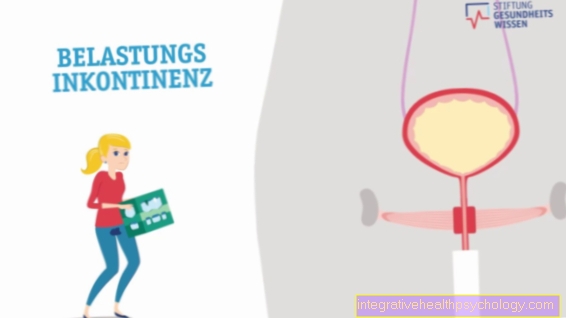


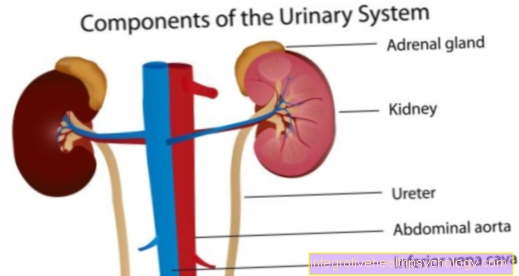






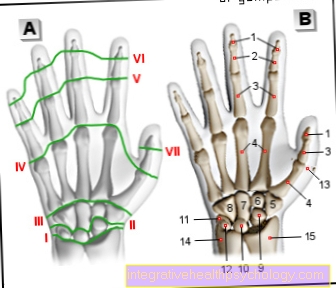




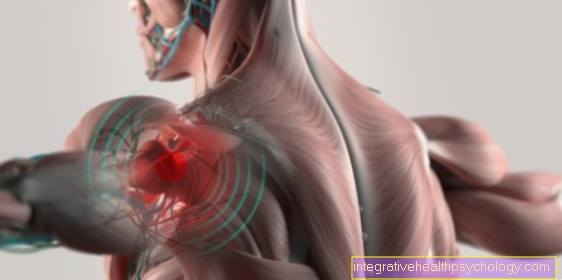







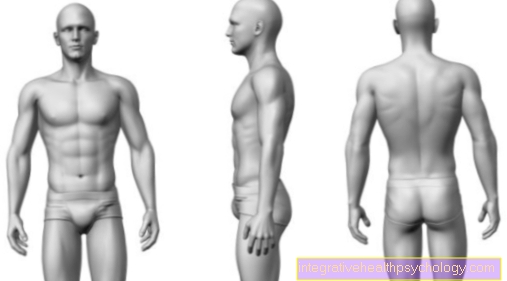
.jpg)



